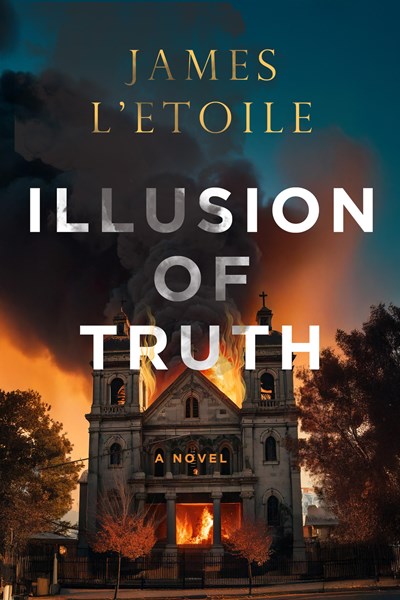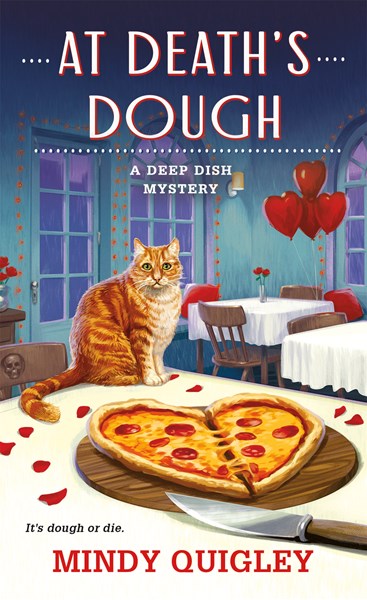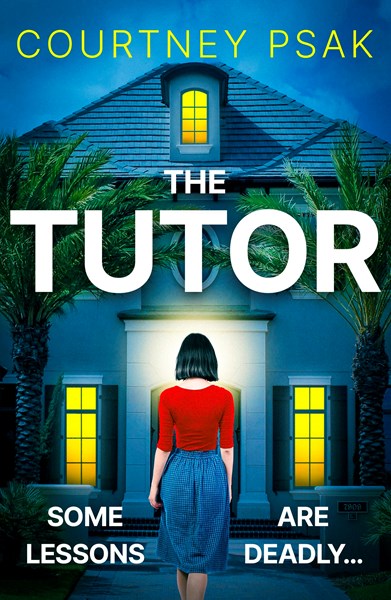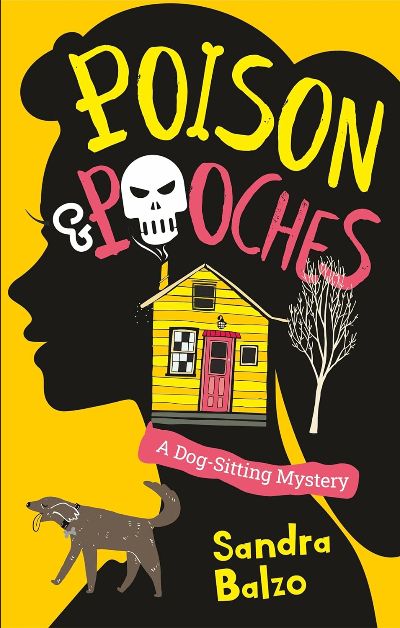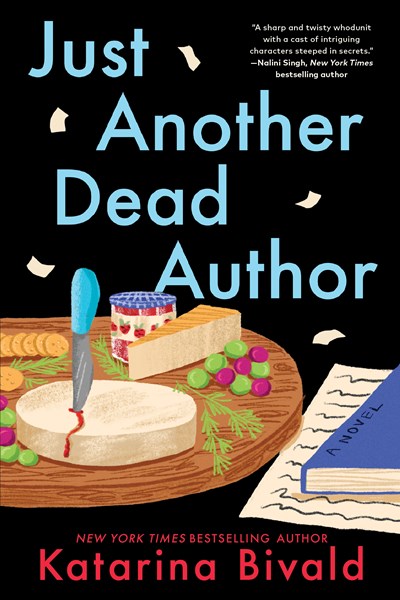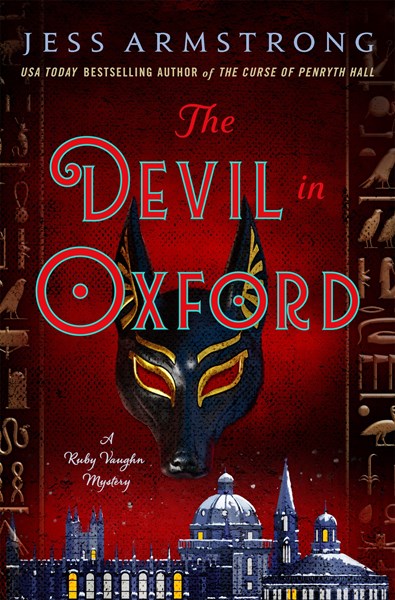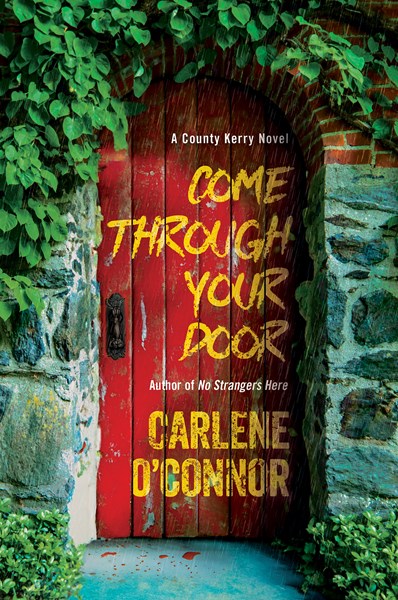Cordelia West lives a pretty simple life. A devoted young Dallas Public librarian, she likes to keep her past just that: in the past. This includes her mother, a former alcoholic, who pretty much wrecked her childhood (they’re now on better terms). But when she receives a letter from great-aunt Penelope—a relative she has never heard of—Cordelia can’t ignore it. She’s been named sole heir to Penelope’s estate back in their hometown of Sarsaparilla Falls, Texas, a place she has assiduously avoided the past few decades. Turns out her inheritance pretty much consists of the Chickadee Motel, which the will stipulates can’t be sold until all residents leave or pass away. So off she goes to Sarsaparilla to see how she can rid herself of these tenants. Cordelia is savvy, and soon after arriving, she figures out the motel is a brothel, with three over-60 sex workers—Daisy, Arline, and Belinda Sue—AKA the Chicks, all eager for Cordelia to sign on as madam. This is the backstory, which is absolutely delightful, but it’s just a launching pad for the rest of the novel, which features extortion, accidental murder, poisoning, blackmail, corrupt developers, a beguiling romantic subplot, and so much more. Lane has created a fascinating world populated with extraordinary characters. Here’s hoping we all meet again.
Women Sleuths
While this is the 11th in a long-running series, readers can ignore all the threads of the ongoing story and only attend to the current bizarreness of a birdwatching tour occurring in wintry Nebraska, and immediate family drama. Kate Fox is preparing for an incoming blizzard when the sheriff calls to tell her that a van of birdwatchers has run off the road and needs rescuing. All local first responders are otherwise occupied, so Kate, sister Louise, and friend Deenie marshal forces in true midwestern fashion and take the stranded group to the local high school to ride out the storm. Louise, a miracle worker of sorts, arrives with enough food, equipment, and know-how to feed and provide beds for the group, though perhaps not to the visitors’ snobby standards. This is a record storm, and they are truly stuck, but however prepared they are, murder is not something that is expected. With homage to Agatha Christie and old-fashioned library books, the ordeal is survived, and the crime is solved in this oddly retro and engaging locked-room mystery.
Detective Emily Hunter of the Sacramento police department must stop someone targeting fellow officers, and it’s personal, in L’Etoile’s latest thriller. Her boyfriend, Brian Conner, is one of several officers sent to stop a riot near a church, but when they arrive, they see nobody around. Shortly after inspecting the area, the silence is pierced by two explosions, one under a police vehicle and the other from a donation box near the church entrance. Conner saves the life of one of the officers but takes the brunt of the blast. Hunter vows to find out who’s responsible for putting Conner on death’s door. Her pursuit of justice will entangle her with her boss, the mayor, and other fellow officers, while she constantly worries that Conner, if he lives, will never be the same. There’s a reason L’Etoile has been winning awards for his writing, and this series highlights why. Like the best of Michael Connelly, L’Etoile has created characters readers care about while also crafting a twisty and compelling story. Fans of police procedurals and heart-stopping thrillers should consider L’Etoile an essential addition to their reading pile.
As Geneva Bay, WI is mostly a summer resort, making ends meet for the town’s small businesses in the winter is no easy task. Delilah and Son, gourmet pizza establishment, is no exception. The history of the place as a vacation spot for the Chicago mob is a mixed blessing, but when the Chamber of Commerce comes up with a “Gangsters of Geneva Bay” map and self-guided tour, Delilah is sort of obliged to sign on, even though it upsets cop boyfriend Calvin Capone, who does his best to play down his nominal connection to the mob. That she and her Aunt Biz discover frozen human remains while ice fishing only makes things worse. We have local and mob history combined with the overflow of ugly divorces, bad police work, family feuds, and a juicy bit of danger to liven the plot, along with trying to make sure that Valentines Day reservations will make up for the rest of the slow month to make this a fun addition to an entertaining series. And of course there are recipes at the end.
The tutor is Isabel, a young woman who’s just started her new job at a rich Florida private school. Readers know that she’s angling to meet the Caldwells, a family whose son, James, attends the school; we follow along as she visits their palatial home for the first time, snooping while there—but what’s she up to? In the meantime, we meet Evelyn, James’s mean-spirited grandmother. Her daughter-in-law Rose, the female lead here, can’t do anything right, and in Evelyn’s view is a gold digger who needs to be out of the picture. The man between these two women is too busy with his finance work to be of any help, and the situation disintegrates as Isabel reveals the reason she wants to know the Caldwells and Rose finds out that her mother-in-law is rumored to have too many mysterious deaths in her tony circle. With secrets and twists coming fast, not to mention emotional stakes that build to fever pitch, this is psychological fiction at its best.
A charming novel with community at its heart. Arial Mayes Kingston has inherited a guest house in Monterey, California. Only in her mid-twenties, Arial turns to the one thing she knows how to do well: walk and sit dogs. O.K., so she is able to drum up only one client: the very handsome Golden named Monty (fans of Laurien Berenson and David Rosenfelt will enjoy meeting Monty). But she is able to make new acquaintances in the neighborhood while walking about with Monty, and Balzo spends plenty of time on character development. In fact, we’re nearly a quarter of the way through the book before a male corpse shows up, discovered, of all places, in the floorboards beneath Arial’s guest house. Fortunately Arial is in the clear—she hadn’t even moved to California when the body had been buried. But boy, talk about an incentive for gossip. Between the local book group, the vet, the neighborhood detective, and several more, we have enough speculation to keep the questions of who killed the victim and who buried him very much alive. When the murderer is finally revealed, it is truly a shock worth waiting for. Looking forward to more from Arial and Monty
Swedish author Bivald gives readers another delightful twisty tale (following The Murders in Great Diddling) with well-known mystery author Berit Gardner in the lead role, along with a diverse and quirky cast of characters, most of whom are writers, agents, and publishers attending a retreat outside Lyon, France. Against the backdrop of the somewhat dilapidated yet beautiful Chateau des Livres, the envy and adoration amongst the attendees begins to merge, even as they continue to workshop “Dramatic Plot Twists” and “Portrait of a Writer on Fire.” When John Wright, headliner and bestselling author, dies in the front row during Berit’s welcoming address, nearly everyone is a suspect. A series of reveals follows, including two Mrs. Wrights, a partial manuscript, and a kitchen crush. When another particularly annoying attendee is found stabbed, the stakes are raised. With the help of sharp-eyed observers and a DCI Ahmed, a friend from England, Berit and her rep Sarah, who happens to be the daughter of John Wright’s agent, start to work out whom the murderer might be, much to the chagrin of local authority Commissaire Roche. Fans of Kemper Donovan’s Ghostwriter series will eat this up. A fun romp through the publishing industry is icing on the cake!
Christmas in Oxford sounds like a good idea. But as might be predicted by anyone acquainted with Ruby and her housemate and employer, Mr. Owens, that is likely a false assumption. While antiquarian books are their business, the Oxford sojourn highlights Egyptian artifacts and brings Ruby back to the harsh memories of her WWI service as an ambulance driver. Her feelings for Ruan, healer and witch, must be confronted, as must her trust in old and dear friends, including Leona, her partner in ambulance duties. Circumstances require much late-night skulking involving lockpicks and a reluctant Ruan as a partner, as well as attendance (unwilling) at overblown parties.In the end, the heroes are found and the evildoers are truly evil, but as with many books in this series, reading is easier if one starts at volume one. Smuggling, murder, and cocaine are mixed within a roiling undercurrent of social and political tension in an atmosphere of scholarship. A nicely drawn period piece.
This fun-loving mystery/romcom features Juliette Winters, author, editor, and likely workaholic. The book opens with Juliette hobnobbing with the Seattle elite on a posh yacht, working the crowd in anticipation of an announcement from business titan Warren Ellingham. It seems that Warren has a) decided to publish his memoirs and b) promised Juliette exclusive rights to the book, the most exciting, salacious tell-all that Seattle has seen in years, if not decades. Except things don’t always make it to the podium as smoothly as one might like. Before he can get a few words out, Warren keels over—likely from a heart attack—and the manuscript disappears, with Juliette left holding an empty bag. It’s easy to feel sorry for Juliette, but the arrival of Charlie Hawkins, MD on the scene, does a lot to cheer things up, and the woman who asserts not to have time for romance may well have to re-examine that claim, while still looking for Warren’s manuscript. Sure to delight fans of lighter mysteries from L. M. Chilton, Mia P. Manansala, and Elle Cosimano.
Twists within deceptions are at the heart of O’Connor’s story of insanity, confusion, and murder. Some readers, in fact, may need to take notes to keep straight the murder of Annabelle a year ago from what is happening in the present day. Veterinarian Dimpna Wilde is once again at the center of events that involve her assistant, Niamh, with a dead body found in her apartment. Cormac, Dimpna’s love interest, is investigating and is tricked by a fake crime-scene photographer who cleans the scene of evidence and disappears, just one of the outlandish events that occurs. The confusion about who is who and what is what is eventually explained, but hardly makes the situation clearer. There is even a bizarre Irish pun of a name that somehow brings the murderer into focus. This series, while offering much in the way of Irish local color, is far from cozy, and offers a lot of satisfaction for readers willing to untangle all the complicated knots.



